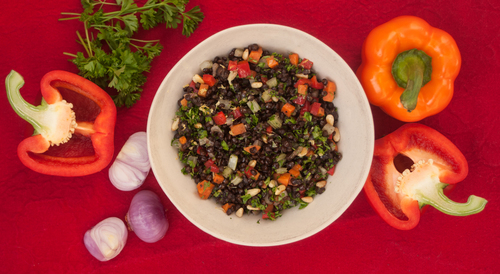THE IMPORTANCE OF SLEEP
Sleep is something all mammals and most animals do. If it wasn’t needed then why didn’t evolution eliminate it?
It is crucial for our survival and essential for the proper functioning on our minds and bodies. Research into sleep is growing but so far we know that during sleep the body is able to actively recover and repair. The process of autophagy, a kind of cleaning of all the waste that has accumulated during the day, occurs while we sleep.
Our brains, in particular, need sleep in order to help us lay down memories and to keep healthy into old age. There is even research to suggest that consistent, good quality sleep may help prevent the onset of degenerative diseases such as Alzheimers.
Our waist lines also benefit from a good nights kip - ever noticed that you feel much hungrier the day after a late night or interrupted sleep? It is the body’s way of dealing with the stress it perceives - but in this modern world of 24-hour access to energy-dense, refined and sugary foods it is no wonder this increased appetite is leading to increased weight gain.
If you want better concentration, a stronger immune system, increased energy and reduced risk of chronic diseases then sleep must not be skimped.
TOP TIPS FOR BETTER SLEEP
Calming Camomile Tea
Watch what you drink. The effects of caffeine (from coffee, black tea, colas, energy drinks and chocolate) can take six to eight hours to wear off in some people. Alcohol may help us fall asleep quickly but it can interfere with REM sleep and disrupt deep sleep. Soothing alternatives to caffeinated drinks include herbal teas like chamomile, valerian and passiflora, which may have a sedative effect. Instead of Alcohol try fizzy water with fresh lemon, lime or root ginger.
Reduce sugar and refined grains. Regular intake of foods with a high glycemic load such as sugary foods and refined grain products like cakes, biscuits, bagels, baguettes, etc. can disrupt blood sugar levels. If blood sugar levels fall low in the night you may find yourself waking up feeling wired from the adrenaline released to try and bring your blood sugar levels up. If this is a problem for you a small complex carbohydrate snack with a little protein-rich food, like an oatcake with a small piece of chicken, an hour before bed may do the trick.
Have a screen-free hour before bed. As we become more and more dependent on our phones, tablets and TVs for entertainment our sleep is suffering and the negative impact seems to be worse for young people. A Norwegian study of 10,000 16 to 19 yr olds found that the longer a teenager spent looking at an electronic screen before bed the worse quality sleep they had. The blue light emitted by screens affect the pineal gland, which makes melatonin, the hormone that regulates sleep. Aim to have at least one hour before bed to relax and unwind without looking at any screen. Turn off your phone and try a relaxing bath or reading a book instead.
Establish a night-time routine and keep your bedroom cool, dark and free from electronic gadgets that emit light
Relax and unwind. Negative thoughts and worry can have a detrimental effect on sleep. Try writing down what is on your mind to help prevent those stressed-out thoughts going round and round in the middle of the night. Meditation or mindfulness are also great tools. If you can’t get to a class to learn the techniques try one of the digital apps available.
Exercise regularly. There aren’t many studies on the effect of exercise and insomnia and the exact mechanisms involved aren’t known but those that have been done suggest exercise significantly improves sleep for insomniacs. It is best to avoid exercise too close to bed however as this may prove too stimulating.
Get daylight exposure in the morning. Our bodies run on a circadian rhythm and exposure to morning light is crucial for these rhythms to run properly, to help us feel energised and wakeful during the day and to help us sleep at night. Ideally we need to spend time outdoors each morning, so if you can walk to work or have your breakfast in the lightest part of the house.
Eat more tryptophan. Tryptophan is an amino acid used to make serotonin, a neurotransmitter involved in mood and appetite control, and for melatonin, the hormone responsible for sleep regulation and a powerful antioxidant. Carbohydrates help tryptophan reach the brain so combine tryptophan-rich sources such as nuts, seeds, tofu, cheese, chicken, turkey, red meat, fish, lentils and eggs with a carbohydrate such as oats, root vegetables or whole fruit.
Cat Nap






